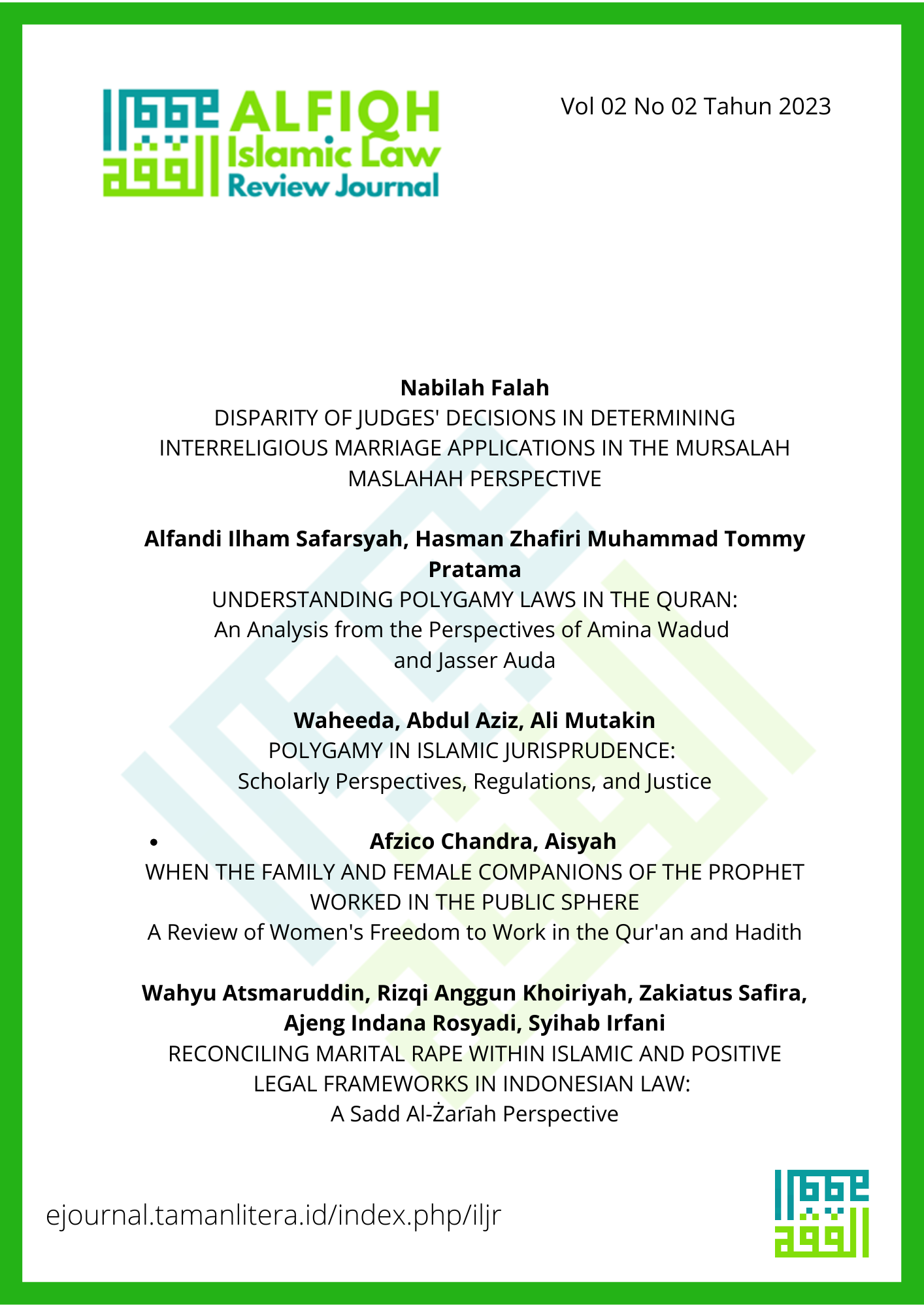WHEN THE FAMILY AND FEMALE COMPANIONS OF THE PROPHET WORKED IN THE PUBLIC SPHERE
A Review of Women's Freedom to Work in the Qur'an and Hadith
Keywords:
female companions, working woman, public sphereAbstract
The opportunities for women to have equal opportunities with men in the public sphere are increasing. This has sparked debates about the ability of women to work in public spaces. This research aims to examine how Islam views women working in the public sphere, with a focus on the family and the female companions of the Prophet as key figures. Two sources are examined: Al-Qashâsh: 23 and some sayings of the Prophet. This is library research using a qualitative approach. The results of the study show that the verse narrates the story of the daughters of the Prophet Shuaib (PBUH) who worked in the public sphere. Interpretations use societal views as a benchmark for the ability of women to work in the public sphere, although there are other interpretations that suggest women should not perform men's tasks unless necessary, and men are expected to assist so that women can return to domestic life. Additionally, there are hadiths that show the participation of female companions of Prophet Muhammad in various fields of work, such as circumcision, agriculture, trade, animal husbandry, cloth making, childrearing, and receiving wages for it. This explicitly implies that during the time of the Prophet, women working in the public sector were commonplace.
Downloads




